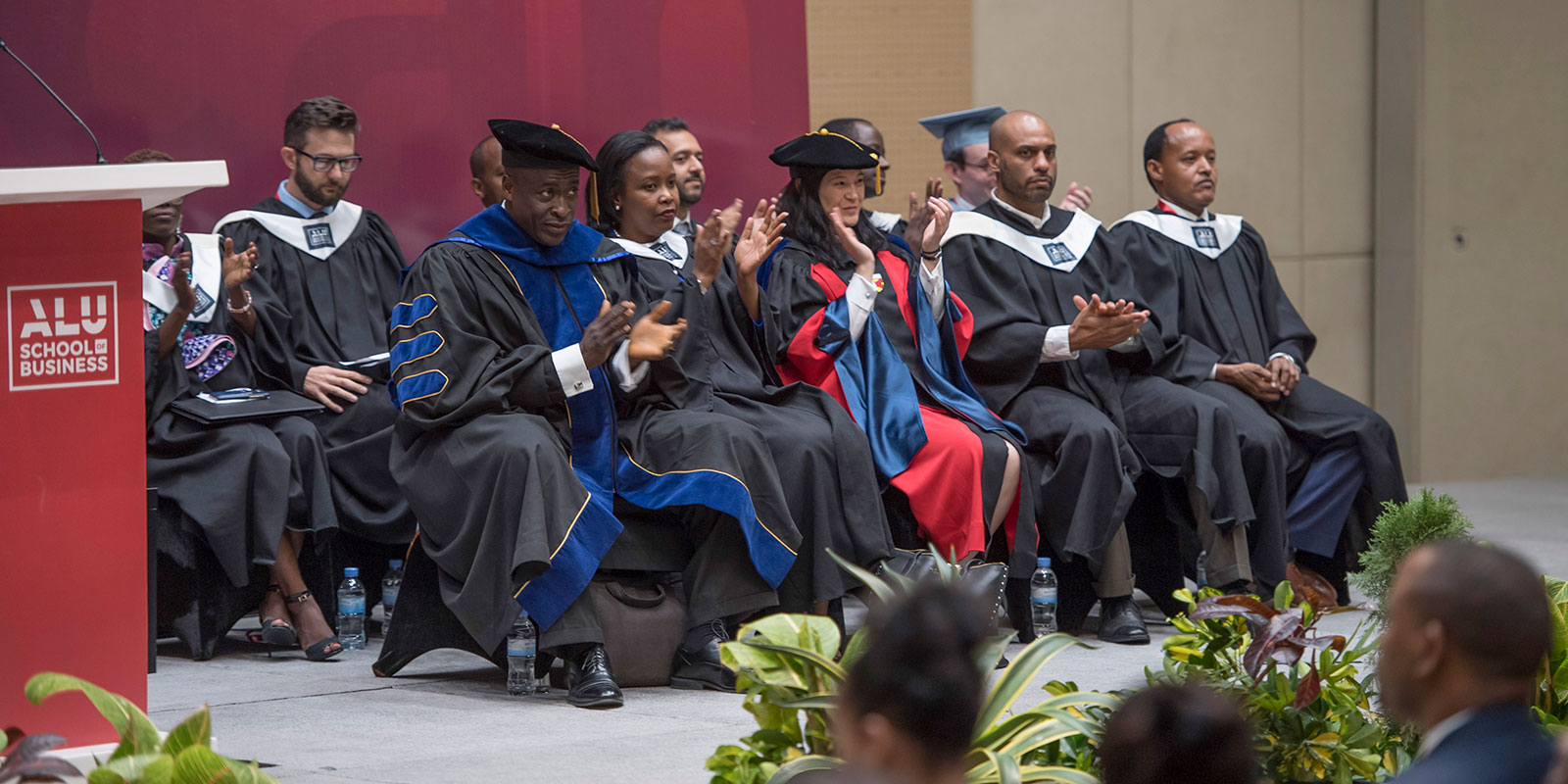When the pandemic hit and countries began to go into lockdown, our university quickly moved to a fully online delivery model. However, the obvious and immediate challenge we faced was student connectivity. Many of our students, even those in urban centers, struggled with data access in order for them to fully participate in their online learning. Even though we designed our system to be asynchronous, meaning students could log in and participate in their own time, connectivity was still a challenge. Some of our students could only log on late at night during off-peak hours. Others live in areas where connectivity is sporadic or inaccessible due to cost issues. Others struggled to get access to the internet at all. A small percentage of students also struggled for consistent access to electricity with which to power their devices. The pandemic has been a stark reminder that Africa’s internet penetration is still under 40%, well below the global average.
The @alueducation has responded to #covid-19 with a mix of resilience, innovation, and support. Universities can play a leading role in developing systems and structures that allow African communities to respond, recover, and thrive during and after the pandemic @iamgaidi
Tweet
COVID-19 has highlighted the need for universities to support their student bodies with both devices as well as data packages so that they can learn online. Some universities have gone as far as to deliver devices, either tablets or smartphones, to their students at home in order to enable them to continue to engage online. Obviously, this is much more difficult for larger institutions. Many institutions gave students data bundles so that connectivity would not be an issue or a major obstacle to their continuing to learn. In Rwanda, the government worked with the local telecoms in order to get the learning management systems of local schools zero-rated, so that students could access them for free. However, this was a temporary plan that only lasted a few months. Our university also provided data stipends to all of our staff to ensure their ability to work remotely.
COVID-19 has accelerated the move away from traditional learning models on the continent. Many students were still attending classes where they would not receive any books or journal articles. Instead, students simply take notes as their faculty lectured. Therefore, all learning happened in person. COVID-19 has highlighted the need to move towards technology for blended learning. Universities must use a learning management system to house learning materials and allow students to submit their assignments.
Contemporary research indicates that the best learning does not happen in large lecture rooms. Instead, it happens in smaller group environments where students can learn from each other and do more practical project and experiential-based learning. COVID-19 has accelerated the move away from large lecture-style learning, albeit for entirely different reasons. However, this is still a positive step for higher education in Africa.
Another challenge that we encountered highlighted the persistent gender bias that still pervades many communities across Africa. When our young female students went home during the lockdown, they were given household chores and responsibilities that our male students were not. Often these household responsibilities interfered with their ability to participate in their online learning. Families still have traditional views about the role of women in the household. The expectation that our female students would serve as cooks, cleaners and babysitters to their siblings superseded the family’s expectation that these young women would continue as full-time students now that they were back living at home. This was a major challenge and obstacle to young women engaging as fully online students.
#COVID-19 has forced universities to recognize that the future is now. The pandemic has forced universities to either adapt quickly to an online delivery system or to stall and risk obsolescence @iamgaidi
Tweet
Universities must provide psycho-social support to our students and be particularly sensitive to the unique challenges young women face in the home. The pandemic has reminded us that we must do better to change behaviors that limit female students’ options and opportunities, often in unintentional ways. As thought leaders, universities are well-positioned to address social norms that harm society. We must advocate for our female students to have the same opportunities to engage in learning as their male peers.
One upside to COVID-19, and the global restrictions on travel created by the pandemic, is that it has forced middle and upper-class families in Africa who traditionally have sent their children to Europe or the Americas for school to now take a closer look at African institutions. This is an excellent opportunity for African universities to step up and show their value.
Along with many others, our university has responded to this pandemic with a mix of resilience, innovation, and support. We are continuing to innovate our learning model as well as our delivery methods and the infrastructure to support that delivery. We are continually striving to understand our students and the challenges they face. We seek to create empathetic and impactful solutions to those challenges. By leaning into the challenges, universities can play a leading role in developing systems and structures that allow African communities to respond, recover, and thrive during and after the pandemic.
Dr Gaidi Faraj, is the Head of College at the African Leadership University, he tweets @iamgaidi.

